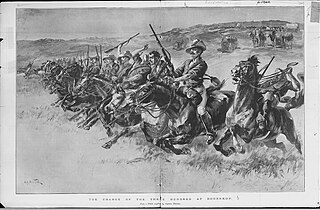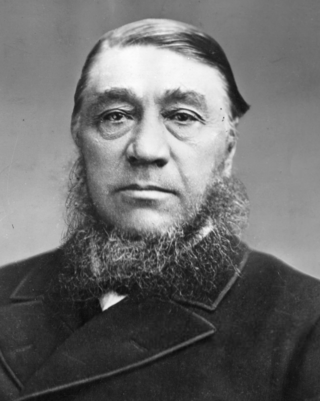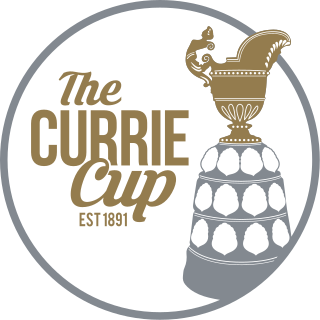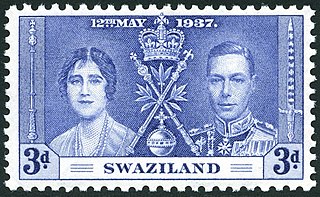
The State Attorney of the Transvaal was the principal legal officer of the Transvaal, [1] or, as it was also known, the South African Republic.

The State Attorney of the Transvaal was the principal legal officer of the Transvaal, [1] or, as it was also known, the South African Republic.
| No. | Portrait | Name (Birth–Death) | Tenure | Notes |
|---|---|---|---|---|
| 1 |  | Eduard Johan Pieter Jorissen (1829–1912) | 1876–1877 | |
| 2 |  | Willem Johannes Leyds (1859–1940) | 1884–1888 | |
| 3 | ? Burgers | 1888?–1894 | ||
| 4 |  | Ewald Auguste Esselen (1858–1918) | 1894–1895 | |
| 5 |  | Hermanus Jacobus Coster (1865–1899) | 1895–1898 | Later killed in the Battle of Elandslaagte of the Second Boer War. |
| 6 |  | Jan Christiaan Smuts (1870–1950) | 1898–1902 |

The South African Republic, also known as the Transvaal Republic, was an independent Boer republic in Southern Africa which existed from 1852 to 1902, when it was annexed into the British Empire as a result of the Second Boer War.

The Transvaal Colony was the name used to refer to the Transvaal region during the period of direct British rule and military occupation between the end of the Second Boer War in 1902 when the South African Republic was dissolved, and the establishment of the Union of South Africa in 1910. The borders of the Transvaal Colony were larger than the defeated South African Republic. In 1910 the entire territory became the Transvaal Province of the Union of South Africa.

The Jameson Raid was a botched raid against the South African Republic carried out by British colonial administrator Leander Starr Jameson, under the employment of Cecil Rhodes. It involved 500 British South Africa Company police and was launched from Rhodesia over the New Year weekend of 1895–96. Paul Kruger, for whom Rhodes had great personal hatred, was president of the South African Republic at the time. The raid was intended to trigger an uprising by the primarily British expatriate workers in the Transvaal but it failed.

Stephanus Johannes Paulus Kruger, better known as Paul Kruger, was a South African politician. He was one of the dominant political and military figures in 19th-century South Africa, and State President of the South African Republic from 1883 to 1900. Nicknamed Oom Paul, he came to international prominence as the face of the Boer cause—that of the Transvaal and its neighbour the Orange Free State—against Britain during the Second Boer War of 1899–1902. He has been called a personification of Afrikanerdom and admirers venerate him as a tragic folk hero.

The Orange Free State was an independent Boer-ruled sovereign republic under British suzerainty in Southern Africa during the second half of the 19th century, which ceased to exist after it was defeated and surrendered to the British Empire at the end of the Second Boer War in 1902. It is one of the three historical precursors to the present-day Free State province.

The Province of the Transvaal, commonly referred to as the Transvaal, was a province of South Africa from 1910 until 1994, when a new constitution subdivided it following the end of apartheid. The name "Transvaal" refers to the province's geographical location to the north of the Vaal River. Its capital was Pretoria, which was also the country's executive capital.

The First Boer War, was fought from 16 December 1880 until 23 March 1881 between the United Kingdom and Boers of the Transvaal. The war resulted in a Boer victory and eventual independence of the South African Republic. The war is also known as the First Anglo–Boer War, the Transvaal War or the Transvaal Rebellion.

The Republic of Stellaland was, from 1882 to 1883, a Boer republic located in an area of British Bechuanaland, west of the Transvaal. After unification with the neighbouring State of Goshen, it became the United States of Stellaland from 1883 to 1885.

The Currie Cup is South Africa's premier domestic rugby union competition featuring teams representing either entire provinces or substantial regions within provinces. Although it is the premier domestic competition, four South African franchises also compete in the United Rugby Championship competition, including for the 'South African Shield'. for the highest placed South African team.

The Boer republics were independent, self-governing republics formed by Dutch-speaking inhabitants of the Cape Colony and their descendants. The founders – variously named Trekboers, Boers, and Voortrekkers – settled mainly in the middle, northern, north-eastern and eastern parts of present-day South Africa. Two of the Boer republics achieved international recognition and complete independence: the South African Republic and the Orange Free State. The republics did not provide for the separation of church and state, initially allowing only the Dutch Reformed Church, and later also other Protestant churches in the Calvinist tradition. The republics came to an end after the Second Boer War of 1899–1902, which resulted in British annexation and later incorporation of their lands into the Union of South Africa.

The Treaty of Vereeniging was a peace treaty, signed on 31 May 1902, that ended the Second Boer War between the South African Republic and the Orange Free State on the one side, and the United Kingdom on the other.

[Klein Vrystaat] Error: {{Lang}}: invalid parameter: |links= (help) was a short-lived Boer republic in what is now South Africa.

The Nieuwe Republiek was a small Boer republic which existed from 1884 to 1888 in present-day South Africa. It was recognised only by Germany and the South African Republic. Its independence was proclaimed on 16 August 1884, with land donated by the Zulu Kingdom through a treaty. It covered 13,600 square kilometres (5,300 sq mi) and the capital was Vryheid or Vrijheid, both being alternative names of the state. The founder and president until it requested incorporation into the South African Republic on 20 July 1888 was Lucas Johannes Meyer, while Daniel Johannes Esselen acted as Secretary of State during the same period.

The State President of the South African Republic had the executive authority in the South African Republic. According to the constitution of 1871, executive power was vested in the president, who was responsible to the Volksraad. The president was elected for a term of five years and was eligible for re-election. The president had to be Burgher and also qualified to vote for the First Volksraad elections, over 30 years old, a member of a Protestant church, and never convicted of a dishonourable offence.

Transvaal is an historical geographic term associated with land north of the Vaal River in South Africa. A number of states and administrative divisions have carried the name Transvaal.
The Afrikaner Bond was founded as an anti-imperialist political party in 19th century southern Africa. While its origins were largely in the Orange Free State, it came to have a significant presence across the region, and especially in the Cape Colony and the Transvaal.
The Minerals Council South Africa is a South African mining-industry employer organisation. Its members include famous South African mining houses such as Anglo American, De Beers, Gold Fields and Harmony. In its current form, it was founded in 1968 as the Chamber of Mines, a South African wide organization. Prior to that year, it has its early origins as the Transvaal Chamber of Mines in 1887, then evolved over many years reforming as the Witwatersrand Chamber of Mines in 1889, the Chamber of Mines of the South African Republic from 1897, Transvaal Chamber of Mines from 1902 and lastly from 1953 until 1967 as the Transvaal and Orange Free State Chamber of Mines. On 23 May 2018, the South African Chamber of Mines rebranded themselves as the Minerals Council South Africa.

This is a survey of the postage stamps and postal history of Eswatini, formerly Swaziland.

Boervolk Radio presented by the Transvaal Separatists, is an internet-only radio station based in Kempton Park, South Africa.

Lijdensrust, officially the Republic of Lijdensrust, was a short-lived Boer republic in the area of present-day Namibia. Declared on 20 October 1885, it was originally named Upingtonia, but changed its name soon after as the reason for its original name proved worthless. In 1887, it was merged into German South-West Africa.